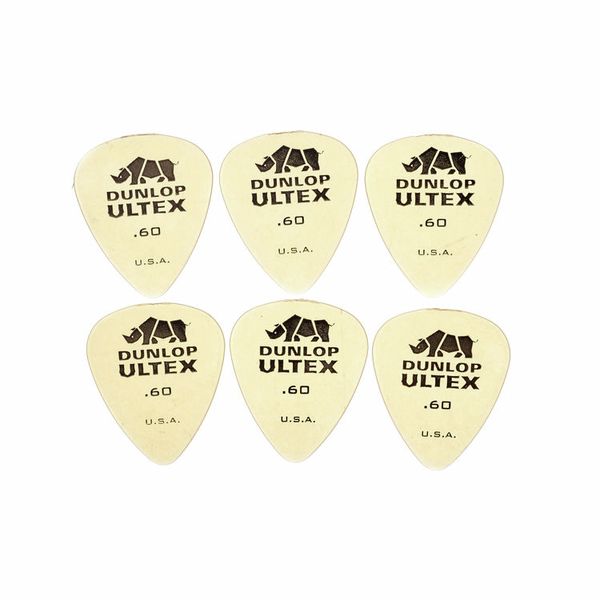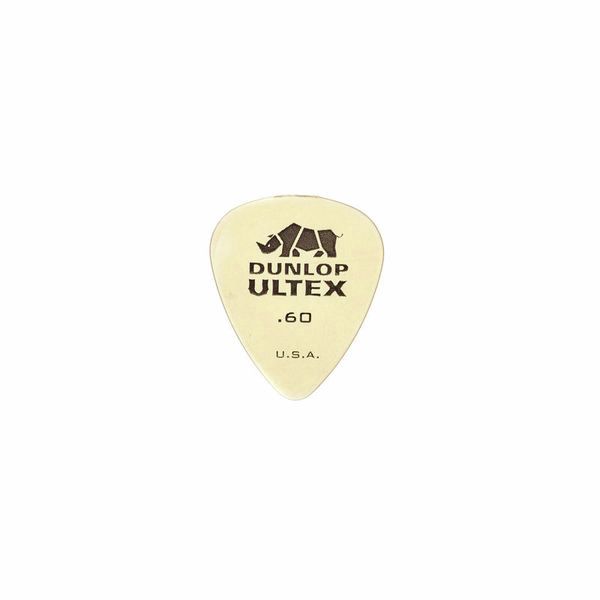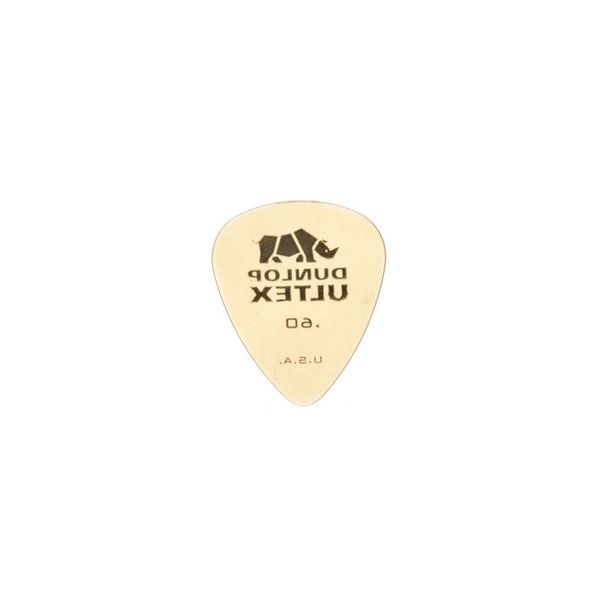It can't be a coincidence if fingernails are 0.60mm thick, no one complains that human fingernails are too thin or too thick, or that they don't pull enough harmonics, or they don't have the right balance between hardness and flexibility.
0.60mm picks extract the maximal amount of harmonics; I tried 0.50mm Tortex but it's too flimsy. I experimented with 20 or 25 pick materials, the only that has the ridigity, edge retention, clarity and harmonics is the Ultex material.
It's clear when you drop them on something hard, they sound almost like pieces of glass, other plastics sound rubbery. Wood is dull, metal makes too much pick noise, stone is harsh. Bone is okay but more for classical guitars, and horn is not consistent, tone varies a lot from horn pick to horn pick.
Synthetic picks are perfectly consistent on the other hand, except a few 1/100ths mm variance in thickness The tip keeps its shape for many months, but elasticity is reduced before that, it's not difficult to hear and feel the loss when it's time to replace the pick.
They don't cost more than other picks but sound way better, so I keep a little stock of them. I also have some 0.73mm in case the sound has to be less "lead", and more "rhythm", but harmonics in musical instruments are so hard to come by, I am tempted to use 0.60's all the time. I also use triangular 0.60 Ultex on my bass, and teardrop 0.60 on all six-strings, acoustic and electric.
But not for classical six-strings, because Ultex hitting nylon is plastic hitting plastic, that's not ideal. Finally, unlike Tortex, I never have to reshape their tip with sandpaper. A very small and very affordable thing that does a lot to improve tone.











